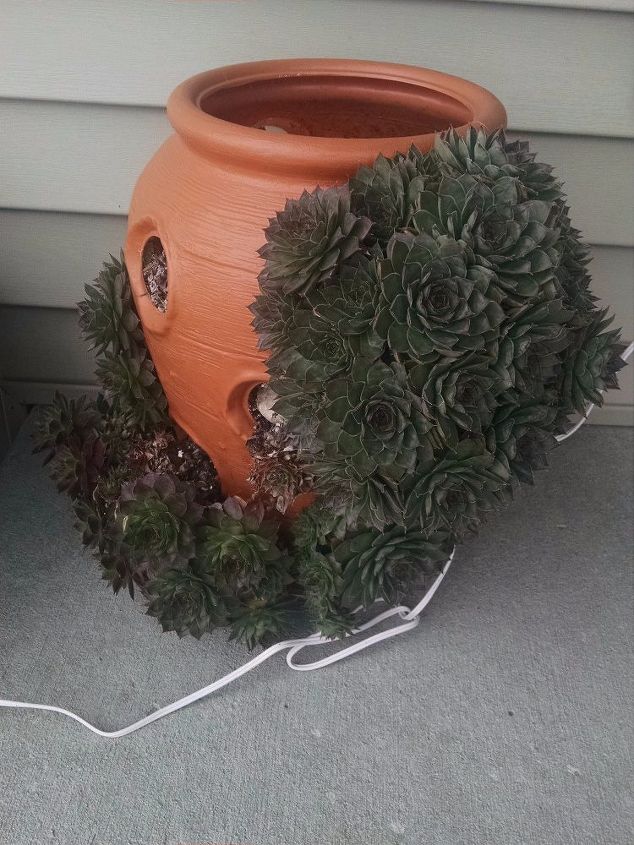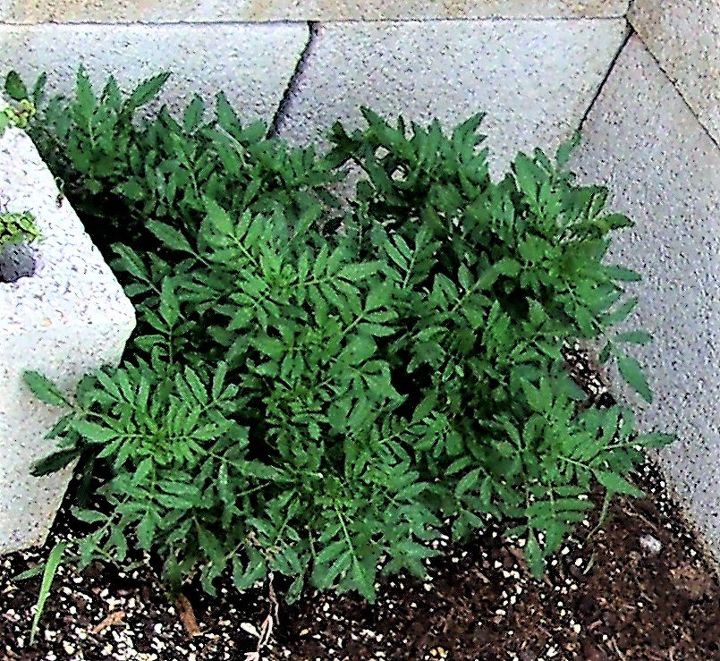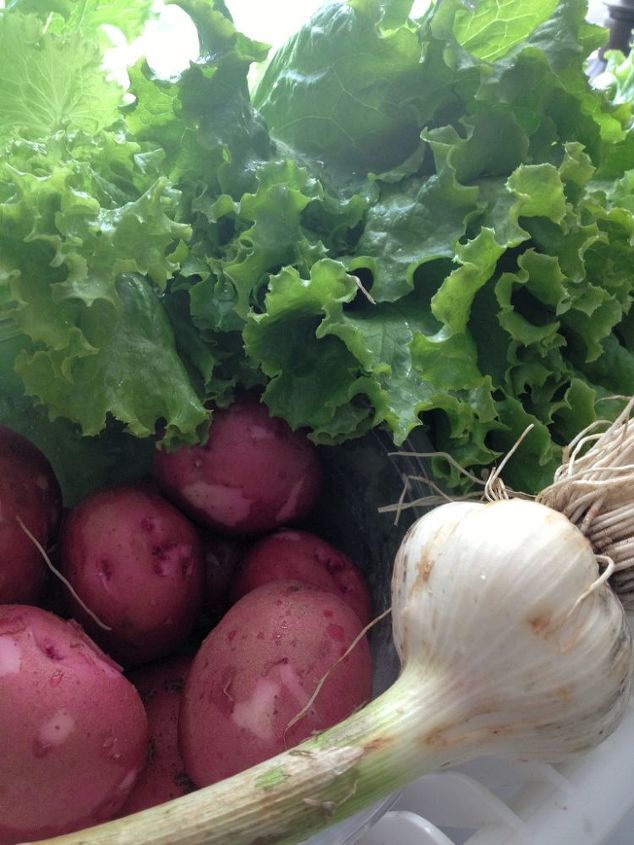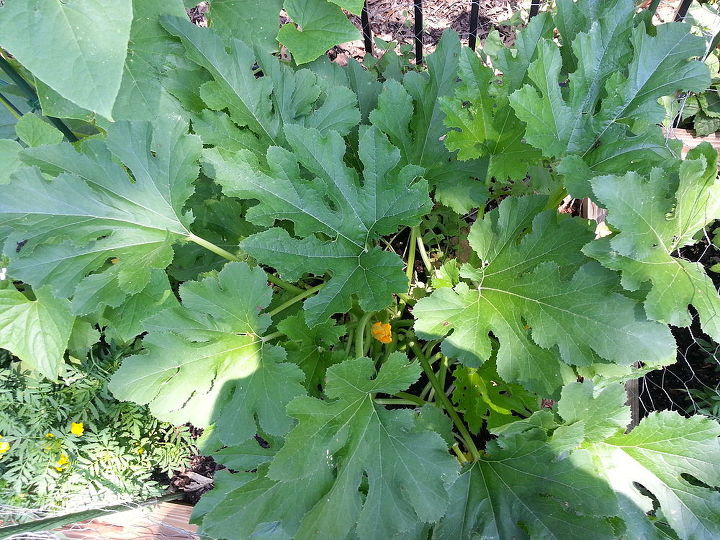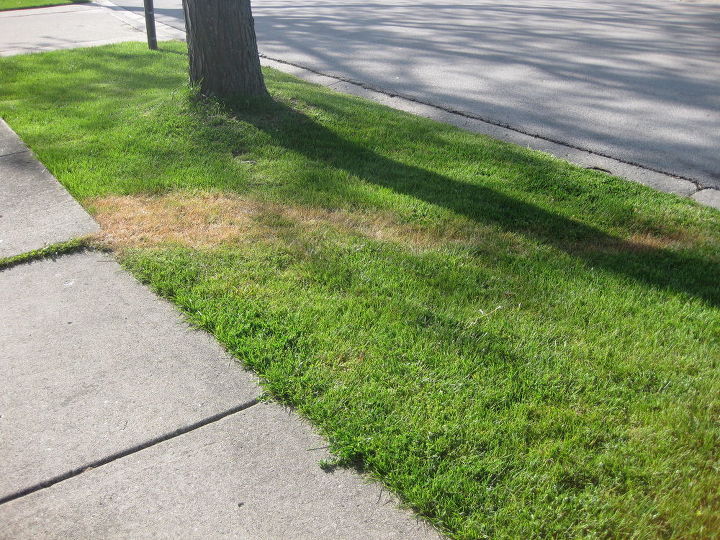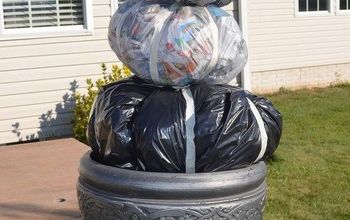Winterizing succulents

The clusters of plants in each hole are getting huge and I'm afraid they are going to break off can I bring them in and divide them over the winter? Thank you very much for any information you can give me. Sincerely, Karen Slemmons
-
The lowest temperate they will survive is minus 5 degrees.It will probably be best to bring them indoors in a sunny location.
 Janet Pizaro
on Oct 29, 2015
Helpful Reply
Janet Pizaro
on Oct 29, 2015
Helpful Reply- See 8 previous
-
-
I live in NE Ohio and mine have survived on the front porch for 20 years. You can divide them and start another pot is you want.
 Mary Jennings Meffe
on Oct 29, 2015
Helpful Reply
Mary Jennings Meffe
on Oct 29, 2015
Helpful Reply -
-
Although the plants would probably survive, the pot might not. Terra cotta is pretty susceptible to moisture and freezing. I would put it in a protected area like under a patio or in the garage just to be on the safe side.
 Dottie Unruh
on Oct 29, 2015
Helpful Reply
Dottie Unruh
on Oct 29, 2015
Helpful Reply -
-
Usually Hens and Chic's will survive the cold. But if you don't want to chance it, bring it in and try to sit it near a window. Yo can also break them up. Succulents propagate very easily! Hope this helps! P.S. Dottie is correct! The Terra Cotta pot might bust!
 Tracey
on Oct 30, 2015
Helpful Reply
Tracey
on Oct 30, 2015
Helpful Reply- See 2 previous
-
-
In IN mine survive outside. Succulents can be divided anytime. I have had mixed success with bringing succulents inside. I have a lot of varieties. Yes, they need water, but not too often.
 Bonnie Renner
on Oct 30, 2015
Helpful Reply
Bonnie Renner
on Oct 30, 2015
Helpful Reply -
-
I live in SW washington. I too have had mixed results with bringing mine inside, But they seem to surrive every year outside. I don't know if there is a rule on dividing, I have had success no matter when I do it. Mine are in terra cotta, but I have sealed them and make sure there is good drainage. I only had one pot crack, but it did that in the summer when my chicks multiplied like crazy before I could get to them and pushed out the side.
 Alicia
on Oct 30, 2015
Helpful Reply
Alicia
on Oct 30, 2015
Helpful Reply -
-
You could also cover in clear plastic but be sure to remove during the day
 Barbara Watkins Bowen
on Oct 30, 2015
Helpful Reply
Barbara Watkins Bowen
on Oct 30, 2015
Helpful Reply- See 1 previous
-
-
Maybe this can clear things up for everyone ;) There are two different scenarios for cold hardy succulents like sempervivum and sedum that are planted outside. They are either in the ground or in pots. Your care for them might change depending on where yours are. In the Ground Hens and Chicks are native to exposed rocky, mountain slopes. They can take extremely cold temperatures. Most will do fine even in temperatures that plummet down to -30. If there is a blanket of snow covering the plants, even better! The snow will actually help to insulate the succulents from colder air temperatures and winds. What is actually more likely than cold to cause you plants distress is rain. It all comes back to succulents not liking their roots to soak. One solution that people often use is to cover their plants with plastic during particularly rainy months. Corrugated plastic, clear plastic sheets, anything to keep the rain from soaking the semps. Of course this is only practical if you only have a small patch of plants. Most of the time, if your plants are in the ground you just let them ride out the winter and expect the best… Plants in Pots A planter full of sempervivum is a horse of a different color… well, maybe not a different color, but a different shade of the same color at least. Soil in planters will heat up and cool more quickly than ground soil. In areas with more harsh winters this means that the plants may appreciate a little extra care. Nothing extreme is needed typically. Here are 5 winter protection ideas for planters with semps (and perennials in general): Lower raised planters to the ground to help reduce temperature swings. Move pots close to the house (it’s warmer and the eaves will give rain protection). Make sure the pots get as much southern sun exposure as possible. Surround pots with straw bales or bags of leaves. Cover your hens and chick planters with a plant blanket (sold to cover early vegetable crops). Most of the time your sedum and sempervivum really don’t need any extra winter care. The best protection you can give you succulent plants is what you did when you planted them, good soil drainage, good light exposure, and a good inert mulch.
 Samantha
on Oct 30, 2015
Helpful Reply
Samantha
on Oct 30, 2015
Helpful Reply -
-
I've been wanting to try again since they were a gift from my neighbor and was sad that I didn't take better care of them.. My mom never had a problem in MT. but I guess WA is to wet I should of brought them up on the porch or something.. But this is all good advice. Thank you.
 Kathy Bitzan
on Oct 30, 2015
Helpful Reply
Kathy Bitzan
on Oct 30, 2015
Helpful Reply -
-
@janet wow! Maybe you should go ahead and check your responses to people before telling them they're wrong. I was only talking in regards to hens n chicks. I believe that was the subject matter was it not? Look it up, you know following your own advice that you so like to give out to others? And then you can appologize because I'm not wrong. As far as having many years of experience at this I have 30, do you have more than that? Also, I was actually speaking in terms of the snow I was not relating it to where I live here in sunny California. You do know that they are alpine plants do you not? So maybe next time before you decide to go off on somebody you can think twice because maybe your the only person who thinks you are the succulent queen! Here is just a copy of one of the 10 articles I just looked up to prove that you are wrong, so why don't you read it... you may be able to pull the other people who don't know very much about this subject but not me. But I'm glad for this interaction cuz at least did you will have learned something from this...see below Do I need to bring my hens and chicks inside for the winter? Sempervivum are very tough alpine plants. They can survive winter temperatures all over the US. Most people will tell you that they are fine down to hardiness zone 4 (-20 to -30 F) and some say they are fine in zone 3. What will kill sempervivums quickest is being cold and wet. If you are stil worried about your hens and chicks in the winter you can experiment with moving them close to the house, into a greenhouse, or covering them with plastic.
 Samantha
on Oct 30, 2015
Helpful Reply
Samantha
on Oct 30, 2015
Helpful Reply -
-
I have never brought mine indoors and I live in the greater DC metro area, where it can get as low as -10 degrees. They have thrived!
 Me
on Oct 31, 2015
Helpful Reply
Me
on Oct 31, 2015
Helpful Reply -
-
My Chicks "n' Hens do just fine left in the ground over winter and I live in NH. I gave some to my sister one fall I had dug up and put in a plastic container sitting in the soil they were grown in. She left them in her basement during the winter, ignored them. Come spring they were still alive and ready for planting. Pretty hardy little guys.
 Audrey Brow Stapleford
on Nov 11, 2015
Helpful Reply
Audrey Brow Stapleford
on Nov 11, 2015
Helpful Reply -
Related Discussions
GNATS - How to get rid of them?
Somehow my house and garden got tiny gnats that killed my fuchsia plant and fly everywhere. I have tried ALL the Web recommendations - soap and oil dishes, sand in th... See more
Marigolds growing! Should I pinch the buds?
My marigold plants are growing. I heard that pinching the buds until Autumn will allow them to grow without killing the plant. Is this true?
Growing garlic
Growing our first garlic, should we wait until the leaves are drying out before we pick it? Husband picked first one today along with our first potatoes.
How to keep mice out of your garden?
Hi everyone, I have mice in my garden destroying my vegetables and I have also noticed them in the barn and shed. Please can someone tell me how to prevent them from ... See more
What's the best flower/plant to grow in Texas?
I know that opinions vary, but what's your opinion?!I have great luck w Rosemary plants. Green all year long.
Squash Plants Large and Healthy and no Squash Growing?
2nd Season in a ROW! Squash plants growing large and healthy leaves and the stems near the roots are looking healthy and turning dark green, getting flowers that grow... See more
Trail of dead grass mystery?
Trail of dead grass appeared two weeks ago that starts in neighbor's yard and goes to the sidewalk, then continues past the sidewalk in a line into the grass into my ... See more
